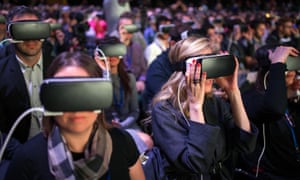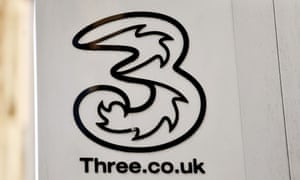1) Read Playing With The Past: Post-feminism and the Media (MM40, page 64 - our Media Magazine archive is here).
2) What are the two texts the article focuses on?
HBO’s Pan Am and Beyoncé’s music video for ‘Why Don’t You Love Me’,
3) What examples are provided from the two texts of the 'male gaze' (Mulvey)?
Her star construction perfectly encapsulates the contradictions of post-feminist culture, simultaneously declaring herself as an independent woman, whilst objectifying herself for the camera and the ‘male gaze’'. 1950s, with over twelve costume changes, all exaggerated versions of the Fifties looks presenting a playful, nostalgic version of the time, and highlighting the performative nature of femininity. The dress codes are highly sexualised; the costumes include tight high-waisted knickers, a vintage style bra, Fifties pedal pushers with cats-eye-shaped glasses, suspenders and stockings which all allow the audiences to not only appreciate Beyoncé’s ‘credentials’ but also the vintage fashion on offer. performance. Throughout the video she plays at being a ‘housewife’, humorously burning dinner, parodying mopping floors and dusting, all the while playfully gazing at the camera providing the audience with knowing winks in her ‘sexy outfits’. This self-conscious address allows Beyoncé to be objectified, welcoming the male gaze but simultaneously also avoiding feminist criticism through this use of parody and humour. The video confirms conventional gender roles, firstly through the lyrics and the song’s constant rhetorical questioning.
4) Do texts such as these show there is no longer a need for feminism or are they simply sexism in a different form?
In my opinion, i think that there is still a need for feminism. This is due to the fact that Beyonce is still portraying herself as a sex object for males to gaze upon her 'sexy' body.
5) Choose three words/phrases from the glossary of the article and write their definitions on your blog.
Feminism – A movement aimed at defining,establishing, and defending women’s rights and equality to men.
Post-feminism – An ideology in culture and society that society is somehow past needing feminism and that the attitudes and arguments of feminism are no longer needed.
Third wave feminism – Was a movement that redefined and encouraged women to be dominant and sexually assertive.
No More Page 3
1) Research the No More Page 3 campaign. Who started it and why?
No More Page 3 was a campaign to stop The Sun from including pictures of topless glamour models on its Page 3; it ended when the topless feature was discontinued.The campaign was started by Lucy-Anne Holmes in August 2012; it reached 215,000 signatures by January 2015.
2) What are the six reasons the campaign gives for why Page 3 has to go?
Avoid children being exposed to sexual content on newspaper front pages.
If as a child you grew up with certain body issues, then I can see how Page Three could affect you.
3) Read this debate in the Guardian regarding whether the campaign should be dropped. What are Barbara Ellen and Susan Boniface's contrasting opinions in the debate?
Susie Boniface:
- the campaign to stop Page 3 – it’s as outdated, pointless and past-it
- Page 3 girls considered they were sexually empowered and celebrating the female form.
there a lot of other far more serious, demeaning or damaging things in the world that women don’t consent to we could be campaigning about instead?
Barbara Ellen:
- if Page 3 was dreary, dated, and offensive before, now it sits like a pathetic leering bare-breasted woolly mammoth amid modern enlightened sensibilities.
- The very passivity of Page 3 is offensive
- it does not matter that, compared to other pornography, the photos are “tame” or “lame” – women’s bodies are neither lame nor tame.
4) How can the No More Page 3 campaign be linked to the idea of post-feminism?
The No More Page 3 campaign can be linked to the idea of post-feminism as many people, especially women, were against ridding the revealing page. Those women believed that the topless women are doing it out of their own will and that it is their choice to make. By taking away page3, many models will maybe be stripped of an empowering factor of their lives. People have also argued that women are no longer objectified and oversexualised by men, meaning that by taking away pg 3, it is only a pointless pursuit.
5) What are your OWN views on the No More Page 3 campaign. Do you agree with the campaign's aims? Should the campaign continue?
In my opinion, I believe that the No More Page 3 campaign should have stopped and the page should not have been abolished. It is the female models who make their own decision whether they are going to model nude and it is not something that they are forced into. Furthermore, if campaigners believe that the page is manipulating young children's mind to believe that modelling while naked is women's purpose, I think that this concept is too abstract and unrealistic as schools teach children about equality.
6) Do you agree that we are in a post-feminist state or is there still a need for feminism?
To a certain extent, I do agree that we are in a post feminist state as women have a drastically different amount of power in society compared to what they once had several years ago. Also, women sometimes feel that despite being portrayed in a sexualised way, this is a form of empowerment as men are somewhat completely entranced by women. In terms of careers in the upper class and elite society, I think there needs to be more feminist concepts invoked into the men with power as it is clearly evident that women are made to be inferior in this aspect of society.





